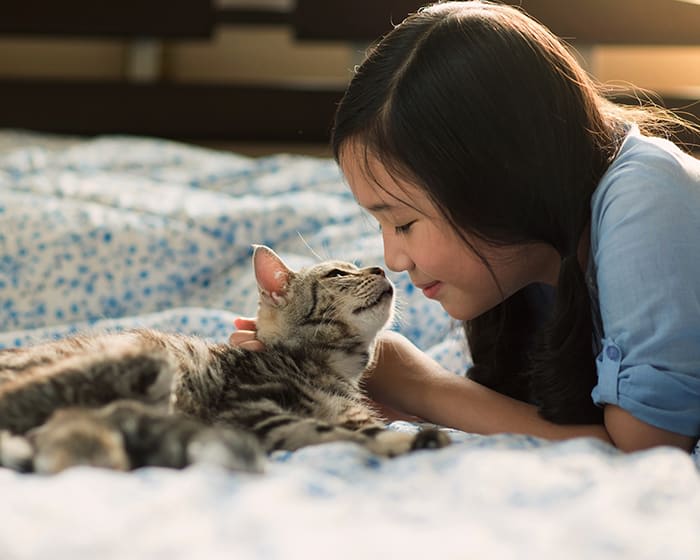Benefits of Spaying & Neutering
Spaying or neutering your cat or dog is one of the most effective ways to support their long-term health and well-being.
At Ingersoll Veterinary Services, our veterinarians perform these routine surgeries with care and precision, keeping your pet’s comfort and safety a top priority. Spay and neuter surgeries are widely recognized as safe procedures that provide lifelong benefits to the health of your pet.
In addition to preventing unplanned litters, these procedures protect your pet from serious health problems, such as uterine infections, mammary tumours, and certain cancers of the reproductive system, and can lessen behaviours like roaming or urine marking that are tied to mating instincts.

Neutering for Male Pets
Neutering, technically called an orchiectomy, is the surgery in which a male pet’s testicles are removed, eliminating the ability to sire kittens or puppies.
For cats: This procedure often helps minimize problem behaviours such as urine spraying, wandering far from home, and fighting with other cats.
For dogs: Neutering can lessen tendencies like mounting, aggression toward other animals, and attempts to run away or break out of the yard.
Spaying for Female Pets
Spaying, medically referred to as an ovariohysterectomy, involves removing a female pet’s reproductive organs, ensuring she can’t become pregnant.
For cats: Spaying can help stop unwanted behaviours such as yowling, inappropriate urination, roaming, or trying to slip out of the house.
For dogs: This procedure ends a female dog’s heat cycle and helps protect her against pyometra (a serious uterine infection) as well as mammary tumours.
Spaying & Neutering FAQs
For answers to more of your questions about spay and neuter procedures please read through the answers to these frequently asked questions from our clients.
-
When should I get my cat fixed?
Kittens may be spayed or neutered as early as six to eight weeks old, though these procedures are typically done when a kitten reaches about five to six months. Still, healthy adult cats can safely be spayed or neutered at virtually any age.
-
When should I get my dog fixed?
While spaying or neutering has traditionally been done when puppies are about six months old, some veterinarians now recommend waiting until a dog reaches sexual maturity before scheduling the procedure. Your veterinarian can advise you on the best timing for your individual pet.
-
How long will it take for my pet to recover from surgery?
Spaying and neutering are usually performed as same-day procedures, so your pet can come home the evening of their surgery.
For about 10 days afterward, your pet’s activity should be limited, and a protective collar may be needed to keep them from licking the incision.
Your veterinarian may also recommend a follow-up visit to ensure your pet is healing properly.
-
Will my pet feel anything during the procedure?
No, your pet will be under general anesthesia and will not feel anything during the procedure.
-
Will my pet gain weight after the procedure?
After being spayed or neutered, your puppy or kitten will continue growing to their full adult size, which naturally involves some weight gain.
Spaying or neutering itself does not cause your pet to gain weight.
-
How much will it cost to get my pet fixed?
The cost of spaying or neutering your pet can vary based on several factors, including their size, overall health, and your location. For a precise estimate, contact our Ingersoll veterinary hospital today.
-
Will my pet need to stay in the hospital overnight?
Although some pets may rarely need to stay overnight after spay or neuter surgery, at Ingersoll Veterinary Services, these procedures are usually performed as same-day surgeries. You’ll drop your pet off in the morning at a scheduled time and pick them up once our veterinarians determine they have recovered enough to go home.
When you return to pick up your pet, we’ll provide clear instructions to help you care for them at home.

